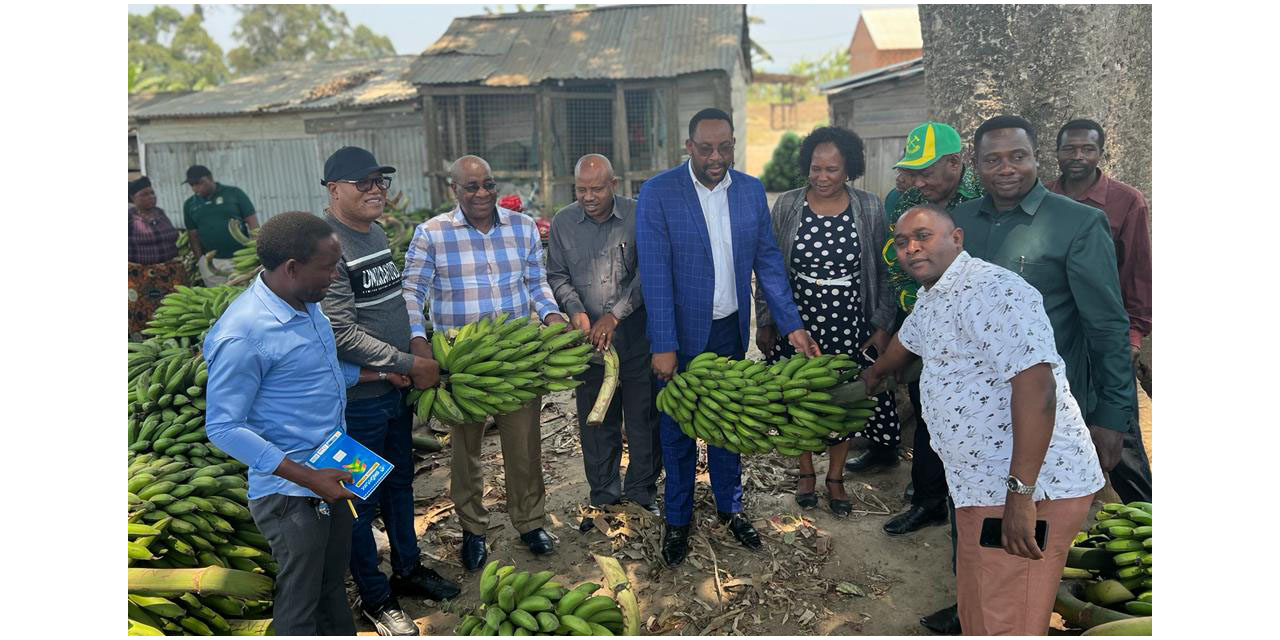Obrein Simasiku
A high level delegation from the Zambezi region comprising the regional and town council leadership is in Mbeya region of Tanzania, canvassing for investors in areas of agriculture, education and the energy sector.
Speaking from Mbeya, the head of the delegation Zambezi Governor, Lawrence Sampofu said, there is abundance of virgin land in all corners of the region, ready for various projects from agriculture, educational facilities or renewable energy to be exploited. “We are here in Mbeya and have visited several projects and the regional leadership including the Chamber of Commerce and Industry. Our aim is to ink a memorandum of agreement in areas of cooperation, and we have equally invited my counterpart who will also lead a business delegation to visit the Zambezi region and also see where and how they can invest,” said Sampofu.
He said there are 10 000 hectares at Lusese, 10 000 hectares at Liselo, 5000 hectares at Sachona another 5000 hectares at Singalamweyo, as well as 2000 at Lyanshulu, 1700 at Sachinga and 1000 hectares at Muyako and Kongola respectively.
“We have the land, it’s now for investors to come through so we become a food basket as we are known for. We therefore appreciate the ambassador for this opportunity which has opened doors for prosperity,” stressed the governor.
These engagements were made possible by Namibian Ambassador to Tanzania Lebbius Tobias, who last year connected the country’s 14 regions to those of Tanzania to create economic partnerships, of which Zambezi is the first to have responded positively. Sometime this year, Tobias the Namibia embassy has organised a business expo in conjunction with the Ministry of Industrialisation and Trade, but could not materialise.
“This has been my commitment to promote and have a workable economic relationship between the two countries, and the visitation of Zambezi signifies the cornerstone of this fruitful trade. I am very happy that they already presented the detailed project proposal indicating the areas to work on. In the same manner they have invited the leadership of Mbeya region to travel to Namibia, Zambezi region to cement the relationship further,” stressed Ambassador Tobias as he briefed the Windhoek Observer telephonically following the business engagement.
Tobias said the delegation consisting of the Zambezi Regional Council Chairperson Warden Simushi, the CRO Regina Ndopu-Lubinda, director for planning and rural development Cletius Mubita, Katima Urban Constituency Councillor Kennedy Simasiku, as well as Katima Mulilo Local Authority councillors Chiza Simanga, and Namangolwa Mapenzi; visited the cocoa, tea, coffee, rice, avocado and banana plantations.
“Mbeya region has a population of 2.3 million, and they are big agri producers. For instance, in Zambezi we have a rice project at Kalimbeza, with these bilateral agreements we can get assistance with experts from here to help us where we are failing. Food sustainability is one crucial sector that the governor continued to highlight, hence their resoluteness and zeal to have this work,” stated the former Tsumeb constituency councillor, who was posted to the diplomatic mission in 2020.
On this, Sampofu said, upon return they will lobby for finances so that local Zambezi farmers can visit Mbeya to have solid technical exposure that they can replicate at home.
Other areas of cooperation, he said, are in education, where the region seeks to have students study at Tanzanian universities. Also Tobias said, the Zambezi is looking at investing in renewable energy such as solar, an area to which support has been garnered as investors have shown interest.
“There are many universities in Mbeya offering medicine, agriculture and technical courses, so the aim is to have students from Zambezi attending their tertiary courses here. I am therefore imploring other regions to emulate what the leadership of Zambezi has done. I am trying very hard to break the barriers and unlock the economic diplomacy, for it to be effective, because trade and investments should be the core between the two countries,” emphasised Tobias.




